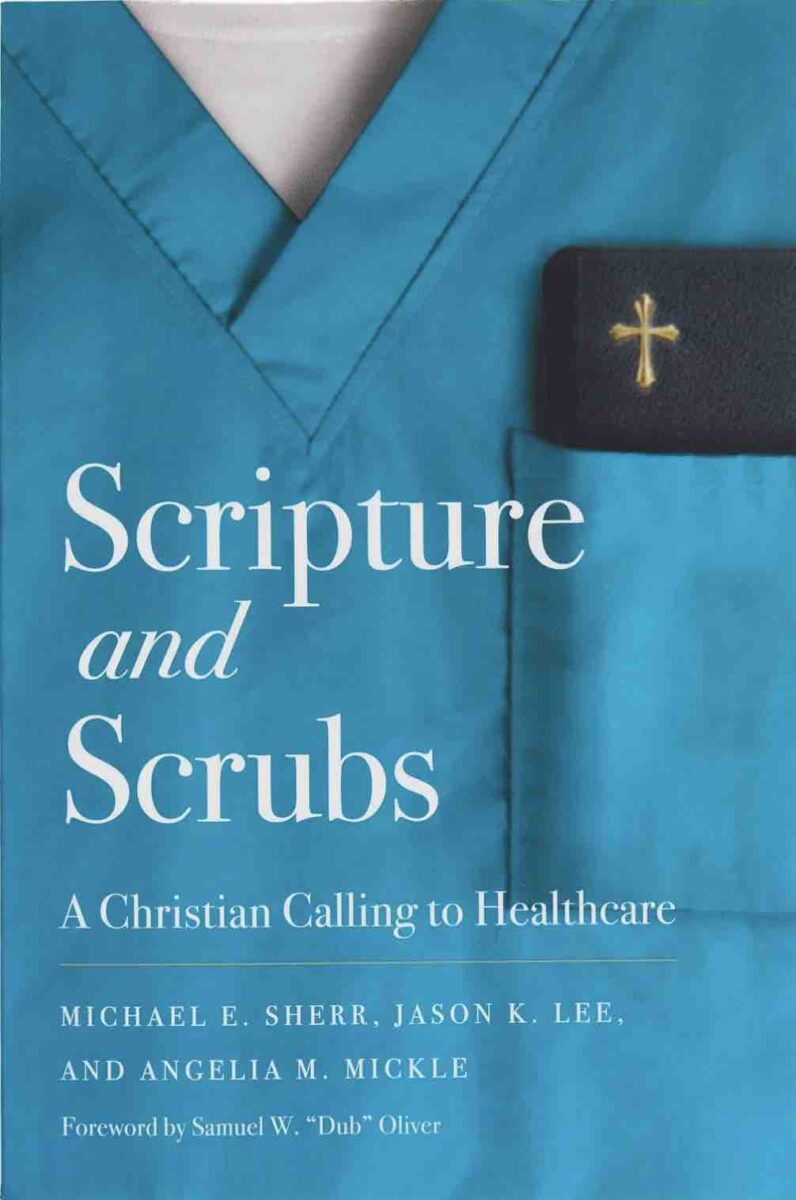AI, Faith, and the Future of Medicine: Medical Professionals and Technologists Weigh In
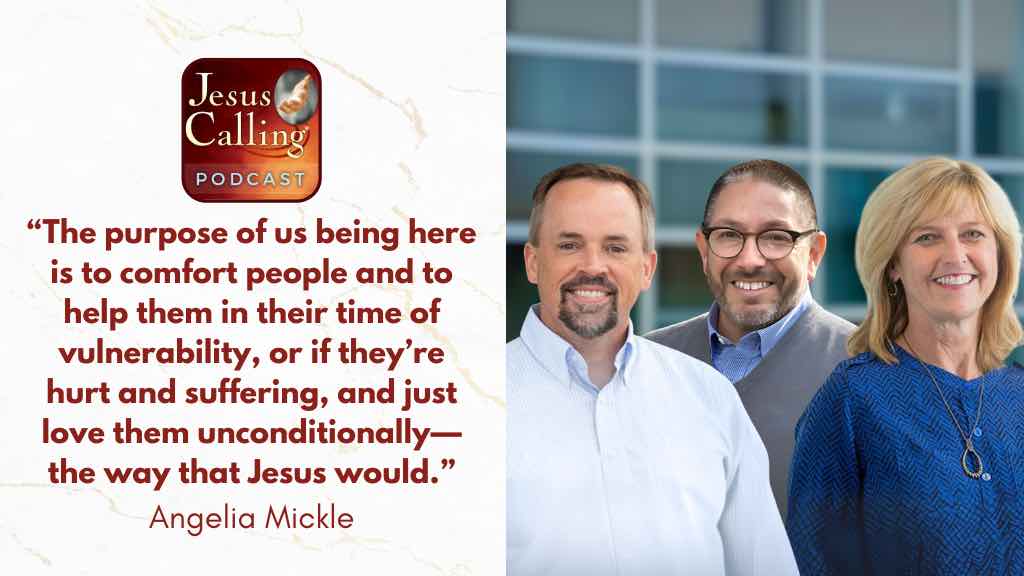
Dr. Michael Sherr: We want Christians who feel called to be on the front lines to make it and be successful throughout their whole career—the 10,000 days or the forty years that they probably will be working in healthcare.
Angelia Mickle: The reality is that we live in a fallen world. We are servants of common grace, and we’re here to point people to Jesus Christ.
AI, Faith, and the Future of Medicine: Medical Professionals and Technologists Weigh In – Episode #480
Narrator: Welcome to the Jesus Calling Podcast. This week, we’ll hear from three seasoned leaders from Cedarville University—Dr. Michael Sherr, Dr. Jason Lee, and Dr. Angelia Mickle—who bring together decades of experience in social work, theology, and nursing. United by a shared passion for equipping healthcare professionals, they explore how we can find renewed strength under tremendous pressures by bridging the gap between faith and health.
Later in the episode, we’ll hear from Dr. Drew Dickens, a technologist and storyteller exploring where faith, identity, and innovation meet. As host of the Encountering Peace and AI and Spirituality podcasts, he brings deep insight into how emerging technology is reshaping the way we think, connect, and seek meaning.
Let’s begin with Drs. Sherr, Lee, and Mickle.
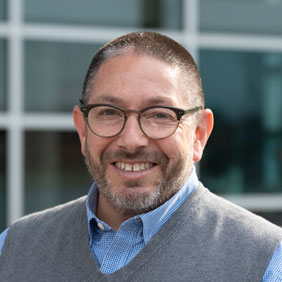
Dr. Michael Sherr: My name is Dr. Michael Sherr, and I am the associate dean of the School of Education and Social Work at Cedarville University. I primarily teach in the social work program, and I’m a practitioner, do some private biblical counseling, discipleship, and am a pretty active scholar throughout the years as a scholar.
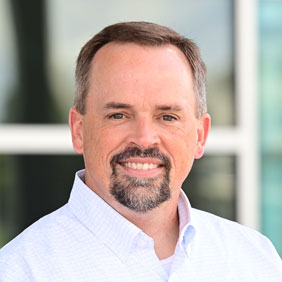
Jason Lee: I’m Jason Lee, and I teach theology classes at Cedarville University. I’m also a pastor at a church in Springfield, Ohio. Through the years, I’ve been able to lead our Center for Biblical Integration at Cedarville University, which allows me to connect with my colleagues from various academic disciplines and professional fields to help them think about how theology and an understanding of the Scripture specifically affects how they do their research or teaching. This allows me to come along and support my colleagues from that role as the center director.
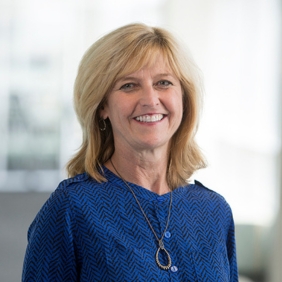
Angelia Mickle: Hi, my name is Angelia Mickle, and I am the dean for the School of Nursing at Cedarville University. I’m a professor of nursing, I’ve been teaching here for about seventeen years and I’ve been a nurse for thirty-five years. I absolutely love nursing. I love the opportunity to teach nursing at Cedarville University where we tie our theology and our beliefs in with our nursing practice. It guides us. We help our nurses become well-educated nurses, but our mission is that they become the hands and feet of Jesus. We live that and we think that that can provide a strong basis to actually prevent nurses from burnout.
Christians in the Health Field Looking for Spiritual Guidance
Dr. Sherr: Dr. Lee and I were meeting regularly as colleagues, and we had been thinking about biblical integration in another capacity on another smaller project together and then I brought up something for us to think about.
Two primary questions that I’ve been wrestling with for most of my professional career. When someone sees a doctor or nurse or a social worker or a pharmacist, does it matter if that person is a Christian or not? And if it does matter, does God’s Word have any guidance for what Christian professionals are supposed to do in the work setting that would guide their practice beyond the oaths that we take and the professional development that we endure through education, workshops, and continuing education?
It resonated with him, and that gave me the confidence to sketch out something on a legal pad. We just started more and more conversations, which then eventually led us to inviting Dean Mickle to be a part of it. The three of us came together—myself being a social work professor, Dr. Mickle being a professor of nursing, and then Dr. Lee being the director for the Center of Biblical Integration. It just seemed like the right fit for the three of us.

Dr. Lee: Christians who have decided to pursue healthcare professions—oftentimes it has a real toll on someone after years and years. I think that this is not just for those who are serving as healthcare professionals. This could happen to a pastor who’s trying to provide counsel to people in his church, it could be a dad who is working through a real difficult season with a teenage son, or a mom caring for young children—just the toil of working so hard and the toll of that over a period of time makes us wonder, Okay, is this worth it? How do I engage again tomorrow? How do I show up with a fresh attitude, ready to let Scripture really drive how I approach this day?
To help think through how could you build this into your lifestyle—whether it’s gathering with other Christians in church and in small groups, or whether it’s [spending] time with Scripture regularly on the daily basis in prayer, maybe even going on a service trip or a mission trip—these are all things that we can find some renewed vigor in. A lot of it also has to do with are we placing our affirmations in the wrong place? One of the readings in Jesus Calling from July 22nd talks about this: “When you let others’ expectations drive you, you scatter your energy to the winds. Your own desire to look good can also drain your energy.” One of the things that we want to do is make sure that we’re setting our trajectory around what God wants from us, to listen to God regularly through His Word, and to connect with Him daily.
“One of the things that we want to do is make sure that we’re setting our trajectory around what God wants from us, to listen to God regularly through His Word, and to connect with Him daily.” – Dr. Jason Lee
Dr. Sherr: Healthcare professionals serve in what I call the front lines. What I mean by that [is] we all have to live out our call to live out the gospel, to be on mission, to live out our relationship with Jesus Christ as Lord and Savior in whatever endeavor we find ourselves in our lives. But healthcare professions, whether they know Jesus or not, are serving on a daily basis where the stakes are higher, there’s a lot of stress all the time. We interact with people when they’re most vulnerable, when they are hurting most. We are always reminding people of their mortality. The fact that people need to receive or seek healthcare is a reminder that things aren’t perfect. Even if someone comes in for a wellness check, it’s a reminder that they’re keeping track of their health because they know that they are aging and eventually they will pass. So that scenario of working with people [who are] most vulnerable, usually healthcare settings are very stressful, having to make decisions on a regular basis.
“We all have to live out our call to live the gospel, to be on mission, to live our relationship with Jesus Christ as Lord and Savior in whatever endeavor we find ourselves in our lives.” – Dr. Michael Sherr
A lot of times, folks in our fields, if they don’t find their identity in the Lord, it’s very easy to go home, have a separate life, and then they get ready, and they go back to work. Basically what ends up happening [is] they live two different lives and/or they turn to many vices to survive the patients that didn’t make it, the amount of stress that they’re dealing with. We want Christians who feel called to be on the front lines to make it and be successful throughout their whole career—the 10,000 days or the forty years that they probably will be working in healthcare.
Blending Our Professional and Spiritual Journeys
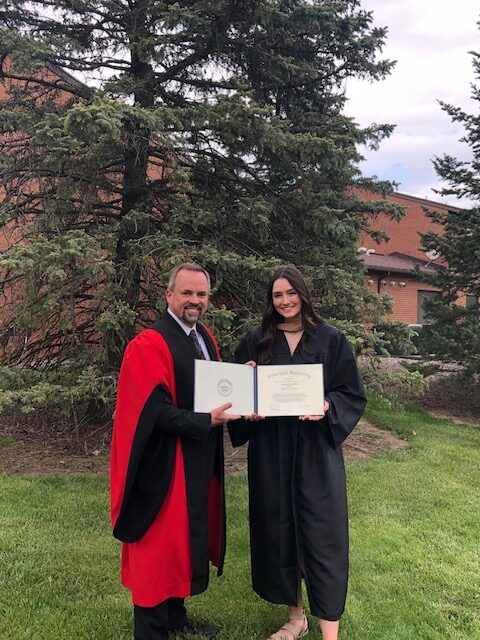
Dr. Lee: I think also one of the things that inspired all three of us was some personal desire to try to encourage people who are on those front lines just feeling the rub and the grind of doing the hard work that they’re doing. For me, on a very personal level, I have two daughters-in-law who are serving as Christians providing healthcare. One is doing so as a counselor, the other is a NICU nurse. And then my son’s a pharmacy student. Just thinking of, What are the things that I can help in those fields—to be encouraged about from the Scripture and about how God equips them for their hard task?
The idea of vocation comes from the idea of calling. That’s what the word means. Sometimes, we can blur a little bit of the line between our profession and the job we have right at that moment and vocation. But vocation is really a broader sense of purpose, and it really comes from a primary sense of vocation pictured in Colossians 3: “As whatever you do in word or deed, do all in the name of the Lord Jesus. Giving thanks through Him to God the Father.” This primary calling of every believer—whatever it is that we’re doing or saying, we would do that to God’s glory and also with thanksgiving in our heart to the Lord for His work. That sense of primary calling then leads to a secondary calling, and that’s where we take our gifts, our talents, the training that we have—including professional or academic training and even opportunities that we have—and we have a specific way that we can blend those things together and bring glory to God and to live in the spirit of thanksgiving for what He’s done.
We could let those remain parallel tracks and then it wouldn’t have the same influence or vocation in what we’re doing. So part of the challenge is to see how we can pull those two things together, let the professional and spiritual journeys together and create a greater impact and a sense of purpose. But also a sense of longevity, because all these things are done not just in the moment and for immediate success or healing or any treatment, but ultimately for the glory of God.
“Part of the challenge is to see how we can pull the professional and spiritual journeys together and create a greater impact and a sense of purpose. But also a sense of longevity, because all these things are done not just in the moment and for immediate success or healing or any treatment, but ultimately for the glory of God.” – Dr. Jason Lee
Holding Joy in a Broken World
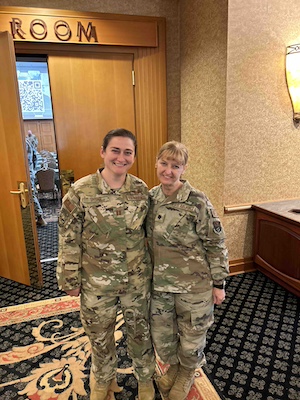
Dr. Mickle: The majority of my career was in emergency and trauma nursing, and I was surrounded by a lot of emotional fatigue from my coworkers. I see the signs of burnout. When people are just not serving with love or they’re just not happy, they kind of forget why they’re there. And then, when somebody comes into the emergency room and they have an earache, that is an emergency for that child and for that parent, and you’ll just see people all of a sudden saying bad things like, “Why would they come to the ER for that?” Well, that was an emergency, and they needed to come.
How I was able to push through it—not that I was perfect at it—but my identity’s in Christ. Some of the tools I would use are daily devotion, worship songs, praying at the beginning of the shift at the end of the shift.
I was actually a flight nurse for five and a half years. There was a struggle for a time when I was flying. It gets tough each and every day. I did often see people live that probably should have died and people died that should have lived, and it was always a stark reminder that the Lord is right in the midst of all of it, and that the purpose of us being there is to comfort people and help them in their time of vulnerability. If they’re hurt and suffering, just love them unconditionally the way that Jesus would.
“The purpose of us being here is to comfort people and to help them in their time of vulnerability, or if they’re hurt and suffering, and just love them unconditionally—the way that Jesus would.” – Angelia Mickle
I found a Scripture that really helped me. It was Isaiah 40:31: “Those who hope in the Lord will renew their strength, they will soar on wings like eagles, they shall mount up, they will not be weary, they shall walk and not faint.” This verse conveys a message of hope and strength for those who trust in God. I looked at that every day before I left for work and when I came home and during dinner, and I just knew that my strength is really in the Lord. When you have Him, you really can overcome any challenges or barriers.
So there’s just a lot of tools. If we have Jesus in our heart, the joy is going to show. Jesus is love, and we’re going to reflect Christ, so we’re going to reflect love.
“If we have Jesus in our heart, the joy is going to show. Jesus is love, and we’re going to reflect Christ, so we’re going to reflect love.” – Dr. Angelia Mickle
The reality is that we live in a broken, fallen world. We are servants of common grace, and we’re here to point people to Jesus Christ. The time that we have here now, the reality is that we need to be the hands and feet of Jesus and take care of others, but we also have to take care of ourselves, right? We have to grow spiritually as well.
Narrator: To learn more about Jason Lee, Michael Sherr, and Angelia Mickle be sure to check out their new book, Scripture and Scrubs: A Christian Calling to Healthcare, at your favorite retailer.
Stay tuned to Dr. Dickens’ story after a brief message.
JESUS CALLING: STORIES OF FAITH Returns for Season 4!

Hey everyone, this is Faith Broussard Cade, your host for the fourth season of Jesus Calling: Stories of Faith on UPTV. We’re so excited to bring you inspiring stories of people from all walks of life, who have turned to their faith in times of struggle, and in times of joy. We’re going to hear from some extraordinary guests this season, including Julie Chen Moonves, who you might know as the host of Big Brother. We’ll also be joined by NFL Hall of Famer Terry Bradshaw and Light Heavyweight Champion boxer Andre Ward, GRAMMY award winning gospel singer BeBe Winans, the world renowned Italian tenor Andrea Bocelli, and actress Taraji P. Henson, in addition to many others. And of course, you’ll get to hear more about me and my story, too. I can’t wait to see you there. Stay tuned for the new season coming soon on UPTV!
Our next guest is Dr. Drew Dickens, a researcher and podcast host who explores the intersection of technology, theology, and human identity. Drawing on years of study into the impact of AI on spiritual direction, he investigates how emerging technologies are reshaping our understanding of meaning, connection, and identity in the digital age.
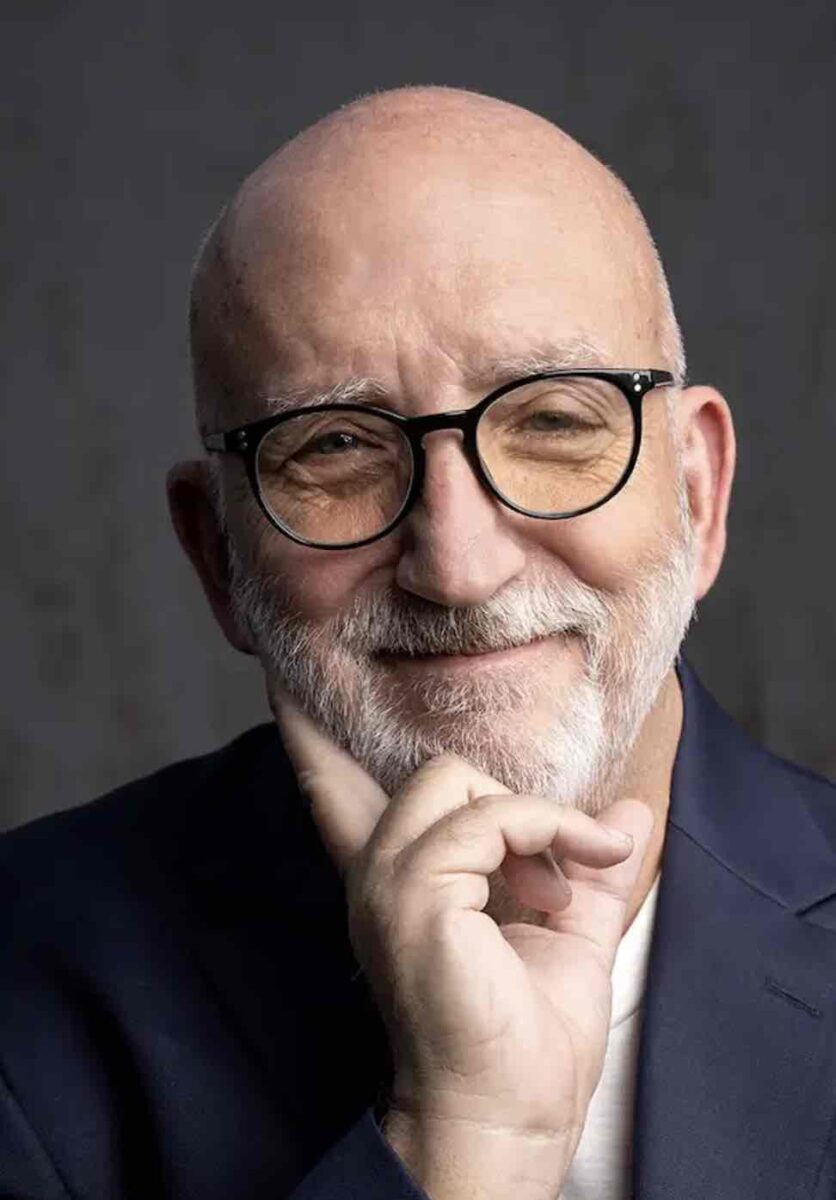
Dr. Drew Dickens: My name is Drew Dickens. I’m a follower of Christ, cleverly disguised as a husband of forty-three years and father of two boys, and my proudest achievement—grandfather of two more boys—and the founder of and host of the Encountering Peace Podcast, and most recently the AI and Spirituality Podcast. I just finished my doctorate in the Effects of Generative Artificial Intelligence on Spiritual Direction and Divine Inquiry.
I’ve always loved technology and tinkering. I’ve always been an early adopter of all things tech, starting back when I was a kid hanging out at RadioShack. So, I’ve always loved technology. I’ve always been drawn to that.
In seminary, I did my dissertation there on the crossroads of the intersection of theology and technology. I wrote about that extensively when I was in seminary and then continued that, but with more of a fine tune in the field of AI, which was just kind of beginning five years ago.
It’s natural to be concerned about change. A lot of times, AI is referred to as a tool. It’s much more than that. This is a society level change, a social level change that will change how we interact with each other. It will change how we view the world and see the world, and I don’t think we should dismiss it. Most of us are using it as a game, as a toy—Hey, look at this goofy picture I made! I think that’s fine because we need to step into the pool and start playing with it, but I think it’s missing the greater opportunity by seeing it as merely a tool.
The Code Behind the Curtain of AI
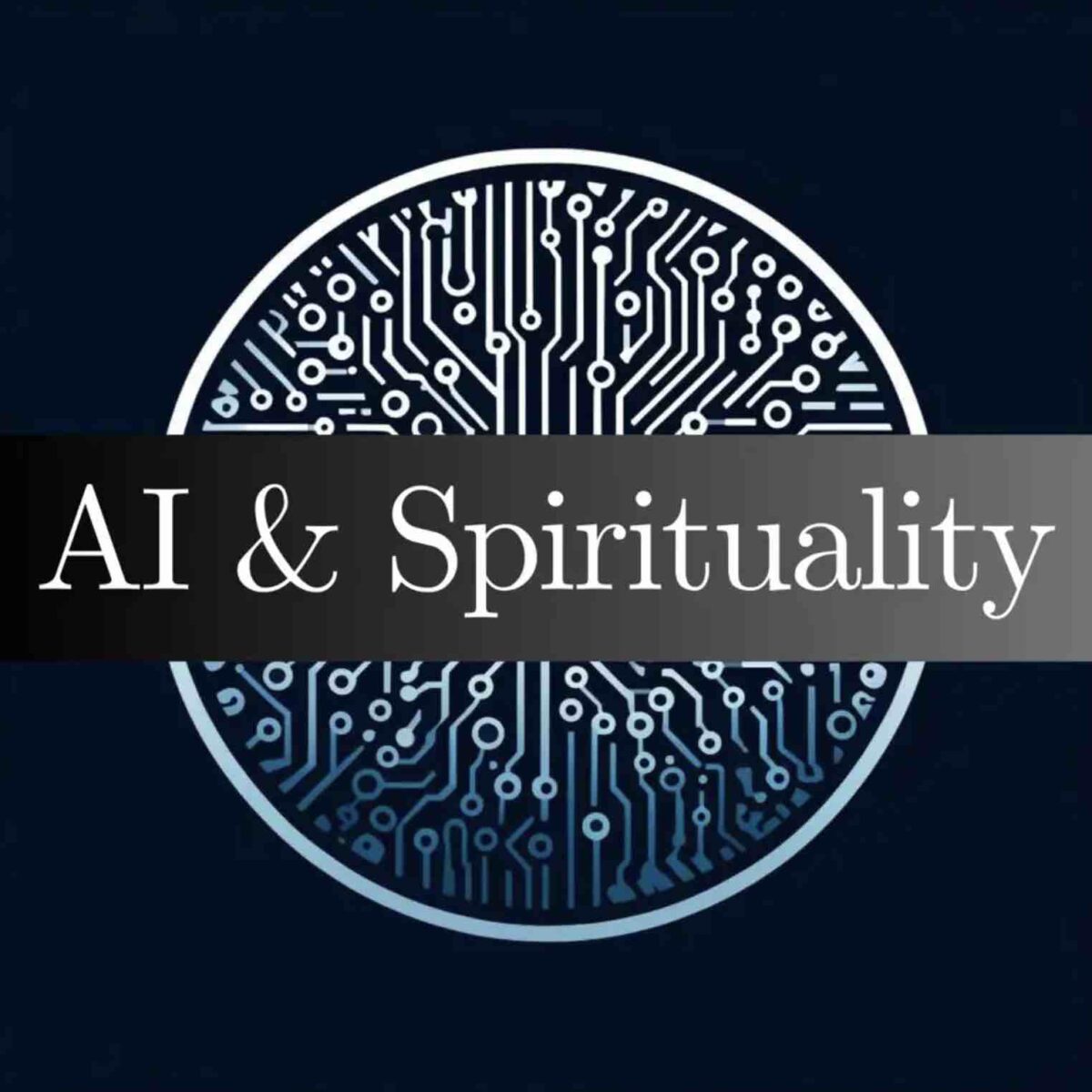
Without getting into the weeds too much, there are levels of training for an AI. At a training level, there is no bias other than the training data that it’s learning from. But the training data now is based on trillions of parameters, so it’s read everything from Sumerian writings to, frankly, today’s podcast.
The next level down is how do we talk to each other? It’s looking for dialogue. As it consumes more, it’s creating its own content and learning from that. As it’s doing that, though, it starts to get very domain specific. So although it wasn’t trained on how to be a brain surgeon, in the process of eating up everything, it learned a lot about brain surgery, or it learned a lot about audio engineering, or it learns a lot about this or that. So then you’re dealing with smaller subsets of data and that can start to get a little biased. I can fine tune it. Now all of a sudden, it can be very biased, it can be completely evangelical, it can be reformed, it could be covenant, it can be atheist, it can be whatever.
I actually interviewed a voice-activated, generative AI that presents in a female voice, and I interviewed it for about thirty minutes. As you start listening, at some point, do you forget this is not human? One of the things that it did was, in the middle of the conversation, it actually offered to pray for me. And it did—and it sounded amazing.
It’s still casually dismissed right now, and that’s concerning to me because we’re dealing with issues of identity, we’re dealing with issues of inspiration.
“[AI] is still casually dismissed right now, and that’s concerning to me because we’re dealing with issues of identity, we’re dealing with issues of inspiration.” – Dr. Drew Dickens
Most of the CEOs of those companies are saying we’ve got maybe two years before we achieve what’s called “artificial general intelligence” or “super intelligence.” And that’s where we are sharing the planet with something that’s smarter than us for the first time in recorded history—with something that knows more and thinks faster than we do. We’ve got a pretty tight window to get in front of this and start asking, What does it mean to be human? What does it mean to be made in the image of God?
Divine Inquiry in a Digital Age
It also poses some great opportunities allowing us to chase rabbits spiritually and biblically of how this verse connects with this verse, translating my sermon into sixty languages. I could have opened up Scripture and taken an afternoon to flip through all those or a commentary or a Bible dictionary, a thesaurus, but in the span of three seconds, [I have] much more data than I care to.
This is great for anybody stuck with, I don’t know where to start. I’m staring at a blank page. Those days are over. You can get lost in that, which is exciting and thrilling to do. So on the negative side, all of a sudden we find ourselves leaning into the authoritative, biblical, theological direction of something, not really ever spending much time studying where this thing came from.
“On the negative side, all of a sudden we find ourselves leaning into the authoritative, biblical, theological direction of something, not really ever spending much time studying where this thing came from.” – Dr. Drew Dickens
Prayer certainly does require effort, but we need to remember that communicating with the Creator and Sustainer of this vast universe is an amazing privilege. Using it for a prompt, if you will, in those moments where it’s just, Lord, interpret the groanings of my heart.
“Prayer certainly does require effort, but we need to remember that communicating with the Creator and Sustainer of this vast universe is an amazing privilege.” – Dr. Drew Dickens
I love to be able to have a devotion that I can turn to that is based on the inspired, inerrant, infallible Word of God. Jesus Calling and Jesus Listens has been a great inspiration to me. I love using it when I teach. I often will use the writings that she did in her introduction because I am thrilled that she struggled with the source of this inspiration—Was this mine or was it the Spirit’s? I think that’s a really healthy conversation for all of us to get into with ourselves.
Now, in an age of AI, I think the question becomes more powerful. If I ask AI a biblical, theological question, what is the inspiration of the answer? I think we need to be asking ourselves even more so now in this age of AI is, Am I relying on it for spiritual direction, for divine inquiry, for spiritual guidance? If it gives me really good feedback that I begin to rely on, what is the role of the Holy Spirit in guiding that response to me?
“I think we need to be asking ourselves even more so now in this age of AI is, Am I relying on it for spiritual direction, for divine inquiry, for spiritual guidance? If it gives me really good feedback that I begin to rely on, what is the role of the Holy Spirit in guiding that response to me?” – Dr. Drew Dickens
A Framework for Faith and Innovation
We’ve always had a fascinating relationship—as believers, as people of faith—with technology and using it. And frankly, we have been through this a little bit with the mobile phone. When that launched, we thought, Wow, how fun is this gonna be? I can walk down the street and not have to be connected by a cord. That’s what the mobile was. I mean, what is it now? It’s a portal into everything.
I think we need to learn from the past and think, Okay, we see this is coming. It’s coming much faster than mobile did, much faster than the internet did, and we need to have these conversations on the effects of it in the pews, on families and relationships—the effects it’s going to have on community, on communion, on what it means to gather together, just to re-engage with a physical moment of intimacy with God.
“We need to have these conversations on the effects of it in the pews, on families and relationships—the effects it’s going to have on community, on communion, on what it means to gather together, just to re-engage with a physical moment of intimacy with God.” – Dr. Drew Dickens
We’ve always wanted to find ways that we can use technology to engage with the divine.
Look at Gutenberg. It’s a printing press, but it had an immense change on the global expansion of Christianity. So I would say that we’re not to be a people of fear but of hope. So to be intentional, to find ways to engage with it in a redemptive way, but to be mindful of those opportunities because there is hope.
From Sarah Young’s book, Jesus Listens, reading from November 29th:
Everlasting God,
Help me to worship You only—making You first and foremost in my life. The Bible teaches that You are a jealous God and that idolatry has always been the downfall of Your people.
You’ve been showing me that false gods never satisfy; instead, they stir up lust for more and more. When I seek You instead of the world’s idols, I experience Your Joy and Peace.
These priceless intangibles quench the thirst of my soul, providing deep satisfaction. The glitter of the world is tinny and temporal. The Light of Your Presence is brilliant and everlasting. I want to walk in the Light with You—becoming a beacon through whom others are drawn to You.
In Your priceless Name, Jesus,
Amen
Narrator: To learn more about Dr. Drew Dickens, be sure to check out his new book, Whispers of the Spirit: A 40-Day Guide to Intimate Prayer, at your favorite retailer.
If you’d like to hear more stories about faith on the front lines, check out our Peace in Uncertain Times video interview with Brett Swayn.
Next week: Jenny Marrs
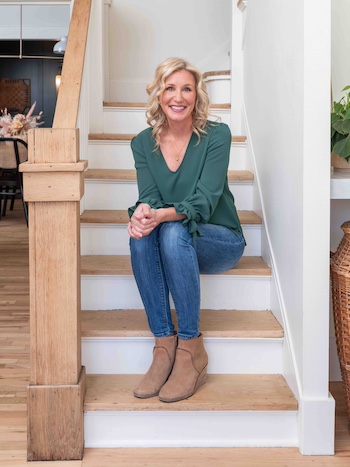
Next time on the Jesus Calling Podcast, we’ll hear from designer Jenny Marrs, co-host of Fixer to Fabulous on HGTV. Jenny opens up her early years before the show, and how her faith guided her next chapters.
Jenny Marrs: I had never been in a place where I had to be on my face in front of God, begging Him for help and for guidance, and for showing me where to step each day, each moment—complete reliance, complete dependence. He used that season to get me there, so that later when I was back in that same place, I could remember: Okay, I’ve been here before. Okay, I can trust You because I trusted You then, and here we are, and I’m gonna trust You again. I mean, that’s just life.
